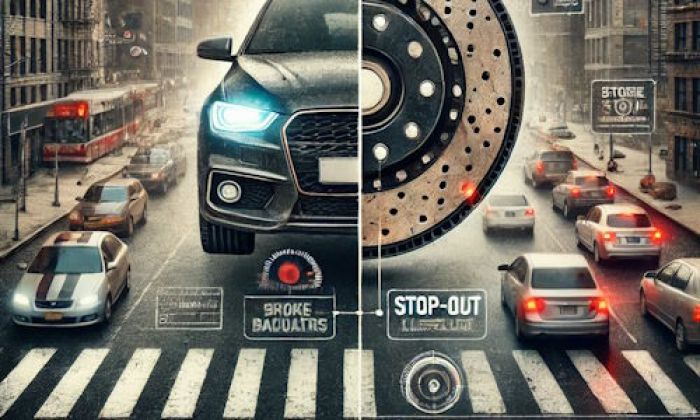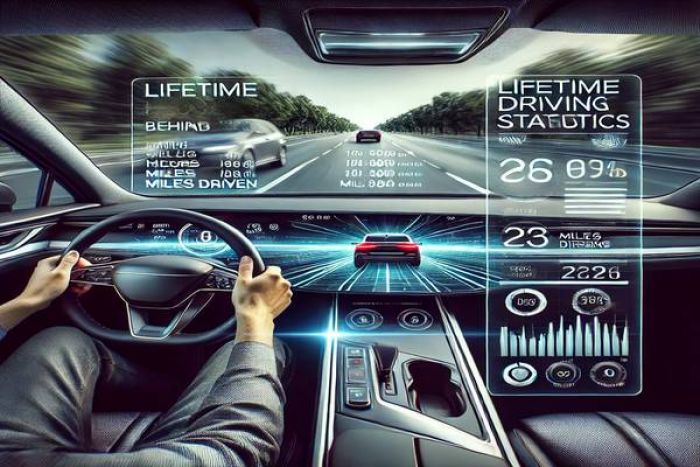The Ford engines are really cool in terms of longevity, technologies, fuel economy, etc. These units are great for different purposes. But everyone knows that the bigger the capacity of the engine, the better the durability. Want to check that? Today we'll be talking about the Ford 6.8L Triton engine - one of the Modular Engines offering 10 cylinders and a lot of power.
This is one of the coolest engines in the family and is actually very popular as a swap engine. Yes, it also has its downsides and problems. But we can't think of any other V10 engines that would be so affordable and fun to use. This is not a unique engine on the market, but it's worth your attention anyway. Let's talk about this great engine and reveal everything we know about it.
.jpg)
Key features and my opinion about the engine
- Production years:1997-2019
- Average lifespan of V10 Triton:350,000-500,000 miles
- Fuel supply type:port injection
- Power range:288-362 hp
- Fuel efficiency:awful
- Engine block material:cast-iron
- Engine reliability score:high
- The most common problems:exhaust issues, spark plugs dying too soon, enormous fuel consumption.
Ford 6.8L Triton specs and main features
What is the 6.8L Triton engine? This is a part of the Modular Engines family and is the only V10 engine in the series. It's one of the best big engines made by Ford because it was produced for a lot of years. The first engines were introduced in 1997 but some vans were even equipped with the V10 Triton engine in 2019. Though after 2005 this engine was replaced by many other models, it was still in production years after that.
We see that people write good reviews about this engine. They say it's quite durable and basically problem-free. Of course, some complaints we can also find among the reviews, but do you know at least one engine without these complaints?
Among the main features of the engine, we can think of the following ones:
- the displacement of 6.8 liters is really cool, it allows to get a lot of torque and power without turbochargers;
- the big displacement also enhances longevity and durability - this engine doesn't get on your nerves with problems and breakdowns;
- you should also pay attention to 10-cylinder construction which is rarely presented in the automotive world;
- the power of the engine is 305-310 horsepower which is absolutely enough for all purposes;
- the main advantage is its torque of 420-425 lb-ft which is much more than in some diesel counterparts;
- the engine was meant to be a heavy-duty unit, but it was also sold in some trucks and vans for private use;
- the construction is absolutely traditional and simple, there is nothing that can be broken and disappoint you regularly.
The Triton V10 construction is simple. It means you can use it for a long time and you will not have problems when maintaining this engine or repairing it. You will also have a lot of power and torque to complete different tasks. And you will not have to deal with traditional problems of diesel engines that can be considered natural counterparts of the Ford V10 Triton engine.
One of the obvious disadvantages is fuel consumption. You are going to be disappointed when you see the gas mileage between 7 and 10 miles per gallon. 10 mpg you will only see on the highway, by the way. So, yes, a diesel engine with the same power and torque will definitely win in terms of fuel consumption. But regarding other specs, we wouldn't say that any diesel engine is better.
Main problems of the 6.8L Triton engine
Ford introduced a 7.3L Godzilla engine to replace the 6.8L V10 in the lineup. And it actually solved all major problems of the Triton. But we should say that the Triton engine is not a very problematic unit and it doesn't need a long explanation of common problems. If you use it for a long time, just keep maintaining the engine like it should be maintained.
Here are some problems that we found in many reviews and decided to share with you:
- Gas mileage. We've already told you about this problem, but we want to include it in the list of troubles.
- Spark plug problems. There are basically two problems. Sometimes a spark plug can just eject from an engine because of poor construction. Also, spark plugs can weld to the block making it really hard to change them.
- Crankcase ventilation problem. The PCV hose can just break and cause a lot of problems with the engine. Well, it's not hard to locate and repair this issue, but when the hose breaks, the engine starts working like crazy.
- Exhaust manifold bolts problems. The exhaust manifold is actually good, but its bolts are prone to corrosion. So, over time, these bolts just rust and break creating big problems with exhaust leaks.
We couldn't find any other common problems that would disappoint you in this engine. The Ford V10 6.8L Triton engine is good and reliable, but it shows some minor problems after it hits the 150,000-mile mark. It doesn't mean that this is the limit of its longevity, but after this mark, it starts taking some money from your pocket.
But even thorough repair will not cost too much. Parts are relatively cheap and labor isn't expensive, too because the engine's construction is simple.
What's the Ford V10 engine longevity?
This engine is very durable. We were laughing hard when we saw that one website with high authority claimed that these engines were durable and they could last about 200,000 miles. No, a 1.6-liter Fiesta engine can last 200,000 miles, but the 6.8-liter Triton engine will last at least 400,000 miles if you maintain it properly. We saw Ford trucks powered by this engine that had 500,000+ miles on the clock and they weren't going to fall apart.
The average longevity of this engine is thought to be between 350,000 and 450,000 which is not bad at all. You can repair the engine by replacing piston rings, crankshaft, valves, and valve seals and get another 150-200 thousand miles.
Application of the Ford V10 Triton engine
This engine was initially made for heavy-duty purposes. And it was installed in vans and trucks that could be sold to both private owners and businesses. Most of these engines were still sold to businesses.
Here are the vehicles that were powered by the Ford 6.8L Triton engine:
- Ford F-250 truck
- Ford F-350 truck
- Ford F-450 truck
- Ford F-550 truck
- Ford E250 van
- Ford E350 van
- Ford E450 van
- Ford Excursion
Most vehicles stopped using the V10 engine in 2005, but the Ford vans continued selling with this engine up until 2019.
Also, Ford powered its motorhomes with this V10 engine which was a nice idea. By the way, a lot of Americans are now searching for the Triton engines with the purpose to install them into their custom-built or remanufactured motorhomes.
What mileage is good to sell or buy?
If you are going to buy a vehicle powered by the Triton engine, think of mileage and overall condition. You should look at the maintenance history and also make diagnostics of the engine to see if there are any problems now.
Also, you shouldn't buy any vehicle powered by this engine if the mileage of the vehicle is higher than 250,000 miles. You can expect any problems at this mileage, especially if you don't know whether the engine was serviced properly or not.
If you own a vehicle powered by the Ford 6.8L Triton engine, you should be careful and get rid of the vehicle as soon as some problems start showing up.
Here are some of the main examples:
- mileage over 300,000 miles - after this, repairing any serious breakdown may not be a very good idea in terms of your investments;
- knocking engine - usually, it means that you will have to take it apart and repair which is extremely expensive and unpredictably long;
- high oil consumption - a very good reason for changing a car because this means that a big repair is going to be needed soon;
- bad start - usually it means there are some problems with spark plugs, but if it doesn't help, things may be much worse.
If you see the combination of these factors, just sell your vehicle and buy a new one. Repairing this engine is not that hard, but still expensive, and when the mileage is very high, it doesn't make much sense.
Final words
You will love the V10 engine if you need something for work. It's not a good engine for a family car because it takes a huge amount of gas. But if you have a small business or you need a lot of fleet cars, the Triton engines are cool because they will last almost forever.
Though, if you want a new vehicle, you will not have a chance to buy a van or a truck powered by the Triton. The company has already replaced the Tritons with the Godzillas which are actually a good option, too.
About the authors
The CarAraC research team is composed of seasoned auto mechanics and automotive industry professionals, including individuals with advanced degrees and certifications in their field. Our team members boast prestigious credentials, reflecting their extensive knowledge and skills. These qualifications include: IMI: Institute of the Motor Industry, ASE-Certified Master Automobile Technicians; Coventry University, Graduate of MA in Automotive Journalism; Politecnico di Torino, Italy, MS Automotive Engineering; Ss. Cyril and Methodius University in Skopje, Mechanical University in Skopje; TOC Automotive College; DHA Suffa University, Department of Mechanical Engineering






Add comment